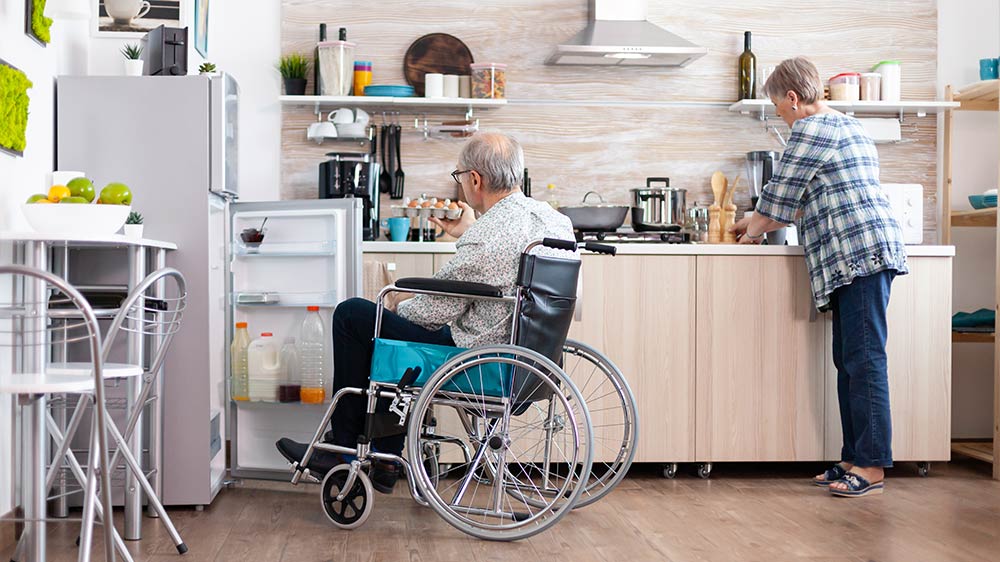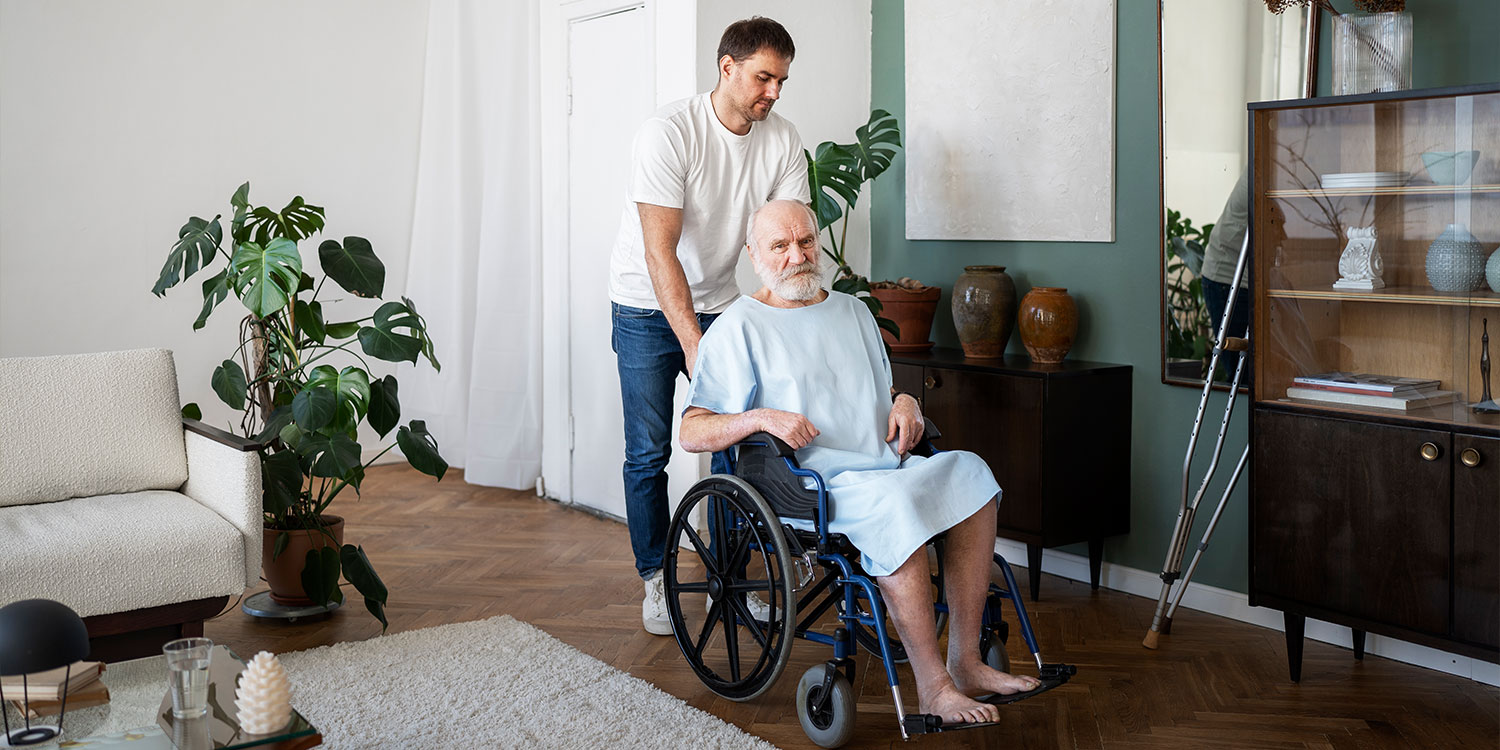When we think about support for individuals with disabilities, the first things that come to mind are often medical care, therapy, and specialized equipment. But have you ever considered the importance of home care services in Mississauga in this equation?
These services can be a game-changer for people with disabilities, allowing them to live more independently and comfortably in their homes. Home care is an invaluable resource, whether it’s help with daily activities, emotional support, or managing complex health conditions.
So, let’s explore how these services provide essential support for people with disabilities and why they are becoming increasingly popular.
What Are Home Care Services?
Home care is a broad range of services provided to individuals in the comfort of their homes. These services can include personal care (help with activities of daily living such as dressing, bathing, and eating), health care (nursing and therapy services), companionship, and housekeeping.
These services are tailored to meet the specific needs of each individual, making them an ideal solution for those who may need extra support but still want to live at home.
Empowering Independence Through Home Care Services
Living with a disability can sometimes feel limiting. Simple tasks that others take for granted can become monumental challenges. However, with the right home care services, individuals can regain their sense of autonomy.
Personal care aids help with daily activities, allowing individuals to maintain independence that might seem impossible otherwise.
For example, many people with mobility challenges struggle to get out of bed, dress, or even prepare meals. Home care provides the necessary support while respecting the individual’s dignity and preferences.
This assistance enables clients to maintain their routine, carry on with their hobbies, and be involved in their communities, fostering a sense of independence essential for self-esteem and mental well-being.
Enhancing Quality of Life
Living with a disability can sometimes mean feeling isolated, whether due to physical limitations or emotional struggles. Fortunately, home care offers much-needed companionship and social interaction.
Caregivers are not just there to help with physical tasks; they also engage with clients meaningfully. A friendly conversation, a shared activity, or a warm presence can make a huge difference in someone’s day.
Many individuals with disabilities also struggle with mental health issues such as depression and anxiety. A supportive caregiver can help address these issues by providing emotional support and promoting an environment of positivity and encouragement.
With professional training in handling various emotional and mental health challenges, caregivers ensure that individuals feel heard, valued, and understood.
Specialized Care for Complex Health Needs
For individuals with disabilities who have complex medical needs, home care services Mississauga can be a lifesaver. These services go beyond essential assistance and involve specialized care, including administering medication, monitoring vital signs, and providing rehabilitation support.
Professional caregivers are trained to assist with medical tasks like wound care, catheter management, and administering injections.
For individuals with developmental disabilities, such as cerebral palsy or autism, caregivers often have specific training to address unique medical or behavioural needs.
Home care providers can help manage therapies, such as physical, speech, and occupational therapy, and ensure that medical appointments are kept. This ensures that people with disabilities have access to the care they need without the stress of frequent hospital visits or institutional care.
Support for Families and Caregivers
Caring for a loved one with a disability can be rewarding but also physically and emotionally exhausting. Family members often juggle caregiving duties with their jobs, social lives, and responsibilities. This can lead to burnout, stress, and even resentment.
Home care provides much-needed relief to family caregivers by sharing the caregiving workload. Home care allows family members to take breaks, knowing their loved one is in safe hands, whether for a few hours a week or full-time support.
This reduces the caregiver’s stress and strengthens the family bond. Family members can focus on being present with their loved ones rather than being consumed by the physical demands of caregiving.
Flexibility and Personalization
Every person’s needs are different, and home care is designed to be flexible and personalized. This means that services can be adjusted based on an individual’s condition, preferences, and lifestyle.
On the other hand, for individuals who require more intensive care, such as someone with a severe disability or chronic health condition, home care services can provide more frequent or specialized support.
The flexibility of these services ensures that individuals receive care that is both appropriate and effective, enhancing their overall well-being.
Ensuring Safety and Security at Home
Safety is a primary concern for individuals with disabilities, especially if they live alone. Home care is designed to mitigate risks and create a safe living environment. Caregivers help with mobility, reduce fall risks, and monitor any medical conditions that could lead to complications.
A professional caregiver can give individuals and their families peace of mind, knowing someone is always available to assist in an emergency.
Additionally, many caregivers are trained in emergency response procedures, ensuring they can act quickly and effectively if a situation arises. From administering first aid to managing medical emergencies, home care offers convenience and an added layer of safety.
Cost-Effectiveness and Alternatives to Institutional Care
One of the significant benefits of best home care services is their cost-effectiveness. Long-term care facilities, such as nursing homes, can be expensive, and not everyone requires these institutions’ full-time care.
For individuals with disabilities, in-home care can also be a better option compared to moving into an institution.
Being able to stay in familiar surroundings, with access to personalized care, often leads to better physical and emotional outcomes. It also ensures that individuals maintain stronger relationships with their family and community.
The Importance of Professionalism and Training
One of the reasons home care is so effective is the caregivers’ professionalism. These professionals are not just hired to assist with daily tasks; they are trained to understand the complexities of living with a disability and how to provide the best care possible.
From understanding medical needs to offering emotional support, trained caregivers can provide comprehensive, respectful, and compassionate care.
Moreover, home care often involves ongoing training and support for caregivers, ensuring they remain up-to-date with the latest techniques and best practices in disability care. This continuous learning ensures that individuals with disabilities receive the highest quality of care.
Conclusion: A Lifeline for People with Disabilities
For people with disabilities, home care services can be much more than just assistance with daily tasks; they can be a gateway to greater independence, improved quality of life, and overall well-being.
By offering personalized care, emotional support, and professional medical assistance, these services help individuals with disabilities live fulfilling lives while maintaining their dignity and autonomy.
Home care provides families much-needed relief and peace of mind, knowing their loved ones are cared for respectfully and professionally.
If you or someone you love is living with a disability, consider how home care could make a difference. It might just be the support you’ve been looking for to help navigate the challenges and embrace the joys of life.















